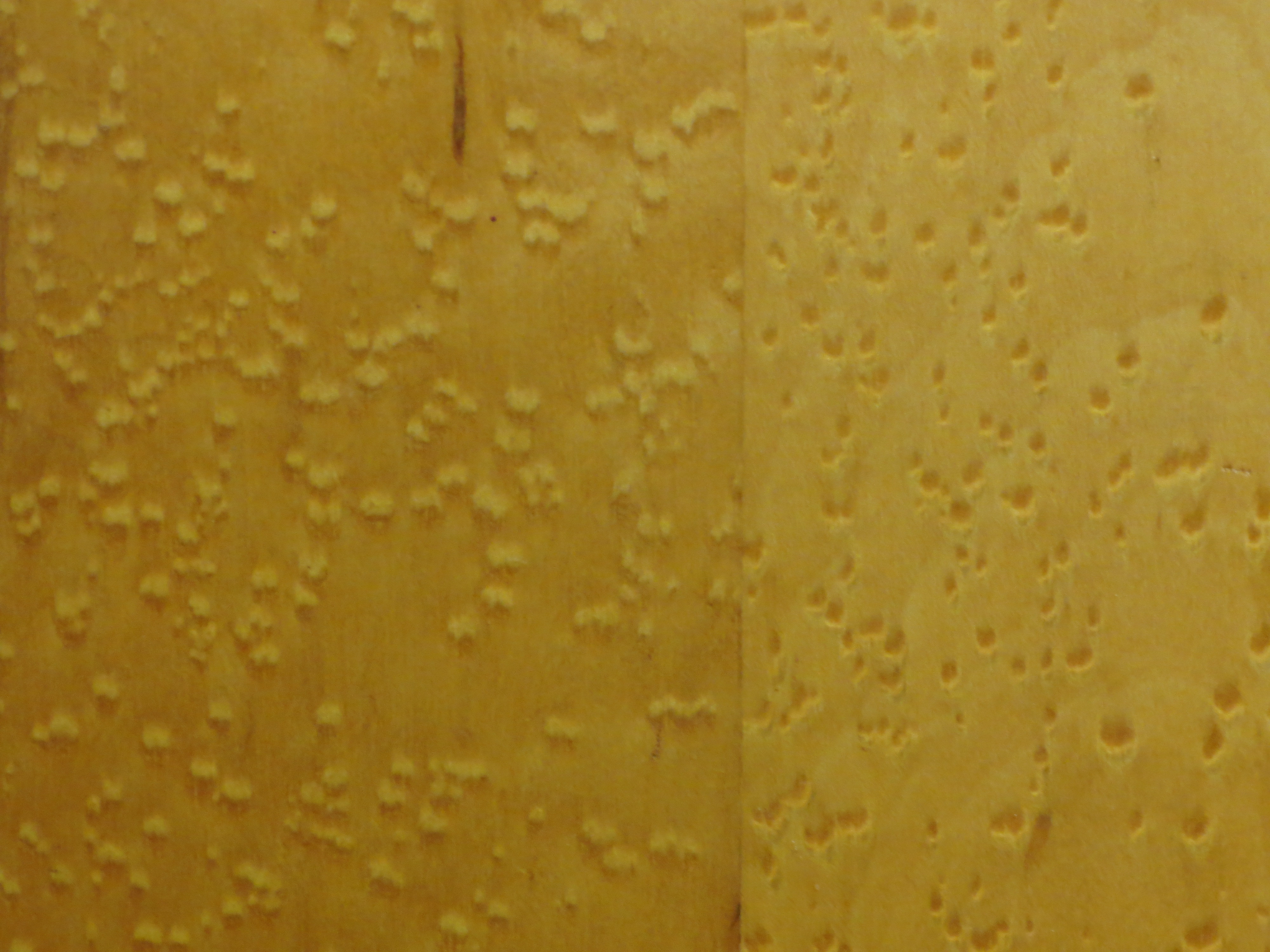Sugar Maple : Timber
In addition to syrup, sugar maples are also valuable as timber trees. Their use in this capacity has led them to be called rock or hard maple, references to the density and hardness of the wood. The wood is typically very light, almost white, in color and can be sanded so as to have a very smooth surface. As a result, it is frequently a component of fine furniture. It is also a relatively dense wood, averaging 35 to 44 pounds per cubic foot, as compared to eight pounds for balsa, 25 for white pine and 47 for white oak. Maple is durable, too, making it well suited for tools, baseball bats and flooring as well. In addition to normal, “plain” lumber, sugar maples occasionally develop beautiful and attractive figuring. The two most desirable patterns that occur are called curly, or tiger, and bird’s-eye maple. Curly maple has a wavy or striped pattern, whereas bird’s-eye is composed of hundreds of tiny dots scattered across the board. Due to the relative rarity of these patterns and their extreme attractiveness, logs displaying such figuring are either cut into veneer, which is a very thin sheet of wood used to disguise cheaper woods, or set aside for use in high end applications. These uses include musical instruments, selected elements of furniture (headboards, table tops, cabinet doors and the like) and as gun stocks. Later Pennsylvania and Kentucky long rifles often feature beautiful stocks of curly maple. Unfortunately, the mechanism which causes these patterns is entirely unknown, even after decades of research, and it is impossible to tell if a tree will exhibit any of these desirable characteristics until it is harvested. Due to its versatility and attractiveness, maple is one of the most valuable woodlot trees. In the spring of 2010, average sugar maple logs were selling for $445 per thousand board feet (mbf) in Vermont, $519 per mbf in New York and $456 per mbf in New Hampshire. Except in New Hampshire, these were the highest prices offered for hardwood timber. The next highest prices (or in the case of New Hampshire, the highest price) were all for black cherry, $375 in Vermont, $509 in New York and $475 in New Hampshire.

